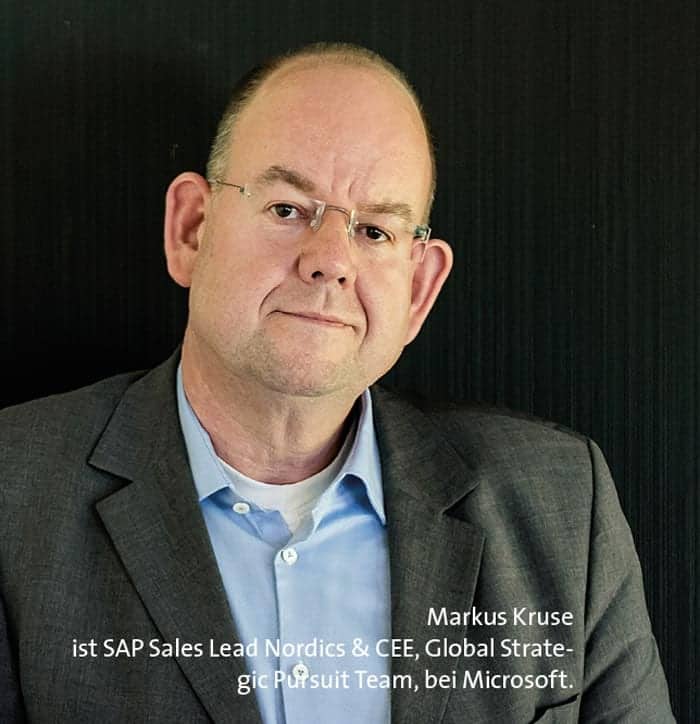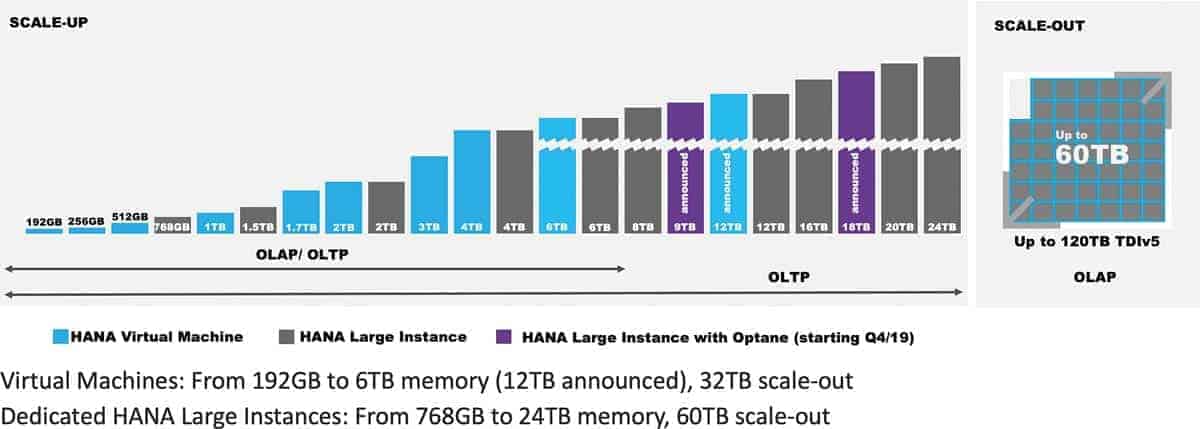SAP users increasingly rely on SAP on Microsoft Azure


Festo is doing it, as is the GEA Group and Daimler. More and more companies from very different sectors of the SAP community in German-speaking countries, and of course also worldwide, are relying on the Infrastructure as a Services (IaaS) for SAP Hana offered by Microsoft in Azure and on other Azure offerings that can be integrated with SAP.
This was underlined, for example, by the results of an investment survey carried out at the beginning of the year by the German-speaking SAP user group DSAG, which also asked which service providers SAP users preferred for cloud computing.
Microsoft with Azure was named as the strongest force above all others. Or, published in the context of the customer event Sapphire Now 2019 at the beginning of May: More than 90 percent of the Fortune 500 now use Microsoft Azure and SAP.

Microsoft's goal or guideline is nothing more and nothing less: to provide the best available infrastructure for SAP Hana or SAP Hana-based applications and also to support companies in their digital transformation projects or ERP modernization efforts in the best possible way.
Customer-oriented community of values
To achieve this, SAP and Microsoft are committed to working together on Azure in a proven manner and providing a best-of-class solution offering. SAP and Microsoft can look back on more than 25 years of close cooperation.
Microsoft and SAP's customer-centric community of values is expressed in a variety of ways: for example, Microsoft has the most Hana-certified offerings, namely 25 VM configurations as well as dedicated bare-metal instances, in its IaaS compute offering; from 192 GB to 24 TB in scale-up and up to 60 TB in scale-out.
In this context, Microsoft provides various Azure VM types as well as dedicated Hana Large Instances, optimally aligned with the different requirements (use cases) for SAP deployment.
Microsoft supports customers and partners with reference architectures in order to optimally achieve the customer specifications of SLAs and requirements regarding high availability and disaster recovery.
In addition to the certification of Hana-based SAP systems in conjunction with Linux operating systems, numerous combinations with traditional databases (AnyDB) in conjunction with Windows Server SLES and other Linux derivatives are of course also provided.
Also new: Azure NetApp Files (ANF), the world's first bare-metal cloud file storage and data management service as an exclusive Microsoft IaaS and PaaS cloud offering, Azure-native and based on NetApp technologies and physical NetApp hardware or NetApp Ontap data management software.
All in all, Microsoft maintains the most extensive and global network of regions with SAP-certified infrastructure. As of the beginning of May, there were 54 regions. Of these, Hana-certified systems are available in 26. And the plan is to add another eight by the end of the year.

What has been achieved is constantly being expanded
Microsoft and SAP are also working virtually constantly to improve and further optimize SAP-on-Azure deployment. The fact is that Microsoft alone invests more than a billion US dollars in some months to expand Azure and spends roughly the same amount annually on (cloud) security - huge investments from which every SAP on Azure customer can benefit directly.
One innovation here: a simplification of the integration of Azure Active Directory and SAP Cloud Platform (SCP). It enables even more secure and convenient access to SAP services and applications. These and a number of other innovations for SAP on Azure were also announced at the recent Sapphire in Orlando.
Among other things, the expansion of the Azure portfolio to include even larger virtual machines, the availability of SAP Data Custodian in Microsoft Azure, or even support for Azure Backup for Hana.
The momentum for SAP on Azure to run mission-critical SAP workloads in Azure is high and growing almost permanently. With Azure services, SAP users have a tool at their fingertips to realize their digital transformation with SAP quickly, securely, efficiently and cost-effectively.
In addition, Microsoft provides SAP customers with added value in that other Azure services and Microsoft solutions such as Office365, Sharepoint or Power BI can also be integrated.
In order to plan or concretely implement the Azure deployment, SAP customers are either supported by Microsoft itself or by certified Microsoft cloud service providers (CSPs).







